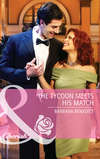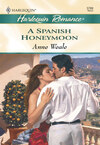Kitabı oku: «The Man From Madrid», sayfa 2
Which was one of the reasons why Cally had serious reservations about ever allowing another man into her life. She knew they were not all selfish encumbrances like her father, but many were, and it could be difficult to recognise a man’s true nature when, in the early stages of a relationship, he was on his best behaviour.
‘Hot plates. Now that is a treat,’ said Peggy. ‘So often, in Spanish restaurants, the plates are cold and it cools down the food before you’ve had time to enjoy it.’ She gave Nicolás a friendly nudge with her elbow. ‘I don’t mean to sound critical ’cos I love Spain. I wouldn’t go back to Birmingham if you paid me.’ She lifted her glass and looked round at the others. ‘Viva España!’
Cally had just placed a plate in front of Fred. Across the table she caught Nicolás’s eye. His face expressionless, he gave her a barely perceptible wink. It had a similar effect to his first smile: something turned over inside her.
Then, like the red light that flickered in the notification area of her computer’s monitor screen when her virus protection program detected something nasty in an email attachment, a voice in her head said, Watch it! This guy is dangerously attractive.
The berenjenas were followed by lamb cutlets with brown earthenware bowls of the vegetables that the Spanish usually served separately but the British liked to accompany their meat course.
Finally, there was a choice of puddings: Juanita’s homemade flan, Mrs Haig’s home-made ice cream, or Cally’s fruit salad, laced with kirsch.
‘You give excellent value for money,’ said Nicolás, who had waited for her to sit down before starting to eat his flan.
‘We try to. It’s the way to bring people back. But we have strong competition from other casas rurales in the region. What made you choose this one and how did you find us?’
‘I read a book by Rafael Cebrián about the mountains in this area. He describes a place called the Barranc de L’Infern, which sounds an interesting challenge. Have you heard of it?’
Cally nodded. The name meant the ravine of hell and everything she had heard made it sound a place to avoid. ‘There’ve been several accidents there…some of them fatal. It’s particularly dangerous after rain. You shouldn’t attempt it alone. You might never get out.’
‘Don’t worry. I’m going to go through with some guys who know what they’re doing.’ He paused, looking into her eyes with a curiously intent expression. ‘But I’m glad you’re concerned for my safety. When I arrived here, I had the feeling you didn’t much like the look of me.’
This was so far from her first reaction on seeing him—that he was the most fanciable male she had seen in a long time—that she almost laughed.
Instead she said coolly, ‘I’m sorry if I seemed unwelcoming. I didn’t mean to. Excuse me, I need to attend to the coffee.’
In the kitchen, Juanita said, ‘How long is he staying, the Madrileño?’
‘Three nights. How do you know he’s from Madrid?’
‘His voice…his manners…his air. He’s very handsome, don’t you think?’
‘Paco is handsome,’ said Cally, referring to the best-looking young man in the village who was a worry to his mother and had broken several girls’ hearts.
‘Paco es uno desgraciado,’ said Juanita contemptuously. ‘You can’t compare that good for nothing with a man of education and breeding. I worked for the upper classes when I was young. I recognise a gentleman when I see one.’
‘You’re a snob,’ Cally told her, smiling. ‘There are as many bad lots among the rich and the aristocrats as among ordinary people. Probably more.’
‘That’s true,’ the cook conceded. ‘They’re no better…but also no worse. Wouldn’t you rather be a rich man’s pampered wife than a poor man’s slave like your mother?’
She was devoted to Mary Haig but, having herself had a husband who spent too much time in bars, took a disapproving view of Douglas.
‘I would rather stand on my own feet and be independent,’ said Cally.
‘You can say that now, while you’re still at your best. You won’t always be young and attractive. A time will come when you’ll want some babies and a man to keep you warm in bed. I know you have a fine career in London, but when you are thirty-five you may not find it so satisfying.’
At the dining table, Nicolás was listening to Peggy but thinking about Cally. He had perfected the art of seeming to be engrossed by older women’s conversation while following his own train of thought at his mother’s dinner parties. Sometimes she roped him in to fill a gap and, though such occasions bored him, he felt an obligation to help her out when he could.
His mother was very rich, and had once been a beauty, but now she was deeply unhappy because cosmetic surgery could not preserve the ravishing face she had had in her youth and none of her husbands and lovers had lived up to her expectations. So now she was a pill junkie, filling her days with meaningless social engagements and pouring out her troubles to several shrinks and any of her five children who could be persuaded to listen to a tale of woe heard many times before.
Seeing at a glance that Cally’s father was what his American friends called a lush, Nicolás wondered why a girl of her obvious intelligence was wasting herself as a maid of all work in the backwoods of rural Spain. With her ear for languages, there must be better things for her to do.
He saw her coming back with the coffee tray and sprang up to take it from her.
‘Oh…thank you.’ When their fingers touched as she surrendered the tray to him, a charming flush gave her cheeks an apricot glow.
She wasn’t tanned like the other women. Her complexion suggested she spent little time in the sun. He preferred her creamy pallor to the almost orange colour of Peggy’s skin. Cally was like a solitary lily in a bed of garish African marigolds, he thought. Not that he disliked his fellow guests. He admired their courage in uprooting and transplanting themselves. They were enjoying their lives, more than could be said for his mother in her palacio in Madrid, or indeed for most of his bored and world-weary relations.
When Cally went to bed, most of the guests had already gone to their rooms. But her father, the man called Bob and Nicolás were still talking and drinking in the lounge. Nicolás was not drinking as much as the other two. In fact he had had only two or three glasses the whole evening. He wasn’t talking as much either, just asking the occasional question and listening intently to their replies.
She hoped he would go to his room soon, before it became obvious her father had drunk too much.
In bed, she turned with relief to the book she was reading, an out-of-print history of the early days of air travel that she found far more absorbing than the current crop of short-lived bestsellers. When the church clock struck eleven for the first time, she put it aside and turned out her bedside lamp. By the time, a few minutes later, it repeated the eleven chimes, she was settled down ready to sleep.
But when it began to strike midnight she was still awake, her mind in a whirl of uncertainty about the future. At half-past midnight she got up, shrugged on a thin cotton robe and took her small torch from the bedside table.
There were no sounds from below as she padded barefoot down the stairs, the tiled treads cool under her soles. The ground floor was in darkness. Someone, probably not her father, had remembered to switch out the lights.
In the office, she booted up the desktop computer she used while she was here and logged on to the Internet, hoping there might be an email from Nicola.
Nicola and her husband were both publishers. Richard Russell was the head of a big firm, Barking & Dollis, and Nicola was co-director of Trio, a much smaller firm. Having been through the misery of redundancy herself—in fact she had been sacked by the man who was now her adoring husband—Nicola was sympathetic to Cally’s anxieties and had promised to let her know if she heard any book trade gossip concerning Cally’s new boss.
Disappointed when no emails downloaded, Cally went to a favourite website that supplied links to the world of arts and letters. But there was nothing new there and, frustrated, she shut down the machine and went to the kitchen for a glass of water.
Three clean wine glasses were standing upside down on one of the worktops. Had Bob washed and dried them? She doubted it. His wife had said during dinner that he was useless in the kitchen.
That meant that the Madrileño, as Juanita called him, must have dealt with them. Which also meant that he had stayed in the lounge until her father finally called it a day. Cringing at the thought of Nicolás seeing her father in his cups, and perhaps even assisting his unsteady progress up the staircase, Cally put the glasses away.
Everything he had said and done had supported Juanita’s conviction that he was a caballero, the Spanish word that meant literally a horseman, but also the possessor of all the chivalrous qualities that distinguished a gentleman from lesser men.
Cally drank a tumbler of spring water brought from a font in the hills and made her way back up the stairs. Reluctant to return to bed, she decided to spend half an hour sitting outside on the roof terrace. As, unlike most Spanish houses, the casa rural had no patio, the terrace was the only place to enjoy some fresh air.
Except during cold snaps, the glazed door to the terrace was always left open, with a curtain of metal strands preventing flies from getting in. As she drew the curtain aside, she saw that one of the guests had had the same idea.
The cane armchair she had intended to sit in was occupied by Nicolás. His legs were crossed at the ankles and his bare feet were propped on the seat of another chair. Comfortably curled on his long lap was her parents’ cat, Mog, who normally made himself scarce when there were strangers in the house.
CHAPTER TWO
IF HE had been lost in thought, he reacted fast to the metallic rustle of the fly curtain as she swept it to one side. But he didn’t make a startled movement as she would have done.
Nicolás glanced over his shoulder, saw her standing in the doorway, and scooped the cat off his thighs before standing up and saying, in a quiet voice, ‘It’s too fine a night for sleeping. Come and join us. I’ve been making friends with your cat. I assume he’s the house cat. Or is he a neighbourhood cat who uses your terrace?’
‘He’s ours,’ said Cally, stepping on the terrace. ‘My mother was walking the dog she had a few years ago. They were crossing a dry river bed when she heard a kitten mewing. It was inside a plastic bag with the rest of the litter. They were about a week old. All the others were dead.’
Her tone was dispassionate, but even now, years later, remembering the incident made her blood boil with disgust for whoever had been too mean and heartless to dispose of the unwanted kittens humanely.
Nicolás’s response was equally unemotional. ‘There are some rotten people in the world,’ he said.
He was holding the cat as if it were a baby, on its back with his forearm under its spine and his other hand tickling its tummy. Mog, who normally disliked being touched by strangers, wasn’t lashing his tail but purring deep satisfied purrs.
Unbidden and unwelcome, the thought came to Cally that being held and caressed by Nicolás might cause her to purr as well. She rejected the notion as soon as it entered her mind. It must be the time of the month when her hormones were on the rampage.
The man was a stranger. She knew next to nothing about him. Because he had a way with cats didn’t mean he was equally good at making love to women. Even if he were, she was not into casual sex. She was not into sex, period. It was a snare and a delusion devised by Nature to trick people into perpetuating the species, though the trick didn’t work as well now that women had control of their bodies, at least to the extent of not getting pregnant. Controlling their reactions to the opposite sex was harder. But she had seen too many colleagues having their lives made wretched by disastrous relationships to want to risk it herself.
‘It’s very quiet here at night,’ said Nicolás, moving to sit on the low flat-topped wall that surrounded the terrace but in places was ranged with plant pots.
‘Some of our guests find the church clock disturbing.’
Against her better judgment, but reluctant to return to her room when the surrounding mountains were bathed in moonlight and the October night air was as balmy as a fine summer night in the UK, Cally sat down in the armchair he had vacated. Although she had a white lawn nightdress under her ankle-length robe, she was conscious of being without a bra or briefs. Perhaps this was because, apart from having bare feet, Nicolás was still dressed.
‘On the way to bed, I was looking at the bookshelves on the next landing. Would it be all right if I borrowed one to read in my room?’
‘Of course…that’s what they’re there for. But not many of our guests are bookworms. Mostly they’re TV-watchers.’
‘Did your parents build up the library, or did they inherit it from the previous owners of the house? Your father mentioned that he and your mother only set up the business about six years ago and had a bit of a struggle to get it going.’
‘It wasn’t easy at first. Some of the Spanish and all the German books came with the house. The last owner was a German botanist. A lot of the books I’ve found on rastros or in the secondhand paperback libraries catering to foreigners. The prices are low because most people take them back for a half-price refund, but I usually keep them.’
‘You would enjoy the bookshops and book fairs in Madrid. Have you been to my home town?’
‘Once, when we were living in the south, we had to get to England in a hurry for a family funeral. We put the car on the train at Algeciras and got off in Paris, with a stop of some hours in Madrid en route. I wanted to see the Goya paintings in the Prado, but it was closed that day. Juanita, who is cooking for us because my mother is away, went to Madrid last spring on a coach with other pensionistas from the village. She had a wonderful time. Have you always lived there?’
‘No, I was born and grew up in the country. I enjoy Madrid, but—’ He broke off as the cat suddenly sprang from his arms to the ground and then jumped onto another part of the wall and peered over the outer edge of it.
‘He’s heard something moving about under our neighbour’s roof tiles,’ said Cally, as Mog vanished. ‘He fancies himself as an ace hunter, but I’ve never known him to catch anything. You were saying you enjoy Madrid, but…’
‘But I wouldn’t want to live in a city all the time. It’s exciting and stimulating, but it can get a bit frenetic. I like to escape now and then.’
Cally was struck yet again by the fluency of his English but hesitated to press him for the explanation he had promised ‘some other time.’
‘Your situation is the reverse of mine,’ he went on. ‘Don’t you ever feel bored with Valdecarrasca? Does it offer enough excitement and stimulus for you?’
She debated telling him that she didn’t live here on a permanent basis and in fact was only an occasional visitor. But she didn’t feel inclined to talk about herself while there seemed to be things about himself he preferred not to divulge.
She said, ‘Nowhere is dull or isolated now that we have all resources of the World Wide Web at our fingertips.’
‘Do you spend a lot of time on the Web?’
‘Quite a lot. How about you?’
‘I subscribe to a couple of forums and read certain online columnists. What sort of things do you do?’
Cally had the feeling they were fencing with each other, neither wishing to reveal themselves. Yet all the time she was conscious of how attractive he was. She liked the way his hair sprang from his broad high forehead, the clear definition of his chin, the way the moonlight accentuated the slant of his cheekbones under the taut dark skin.
In her late teens, when she had sometimes indulged in romantic daydreams, this was the kind of face she had visualised but never seen in real life. Her parents had been living in Tarragona province then, and the Catalan men in that area had not been remarkable for their looks.
‘Mostly I read the book reviews at online bookshops. Sometimes I look at what’s on offer at the auction houses. The great thing about the Web is that it’s all things to all men…and all women,’ she said, smiling. ‘Whatever you’re interested in, you can find stuff about it and people who share your enthusiasms.’
‘Some people even find partners, one hears.’
Cally shrugged. ‘So they say. Perhaps, if one’s looking for a partner, it’s a good place to find one. I’ve often thought that people who aren’t good-looking are at a huge disadvantage in the real world. They may have wonderful minds but they get written off because their faces aren’t pretty or handsome.’
The church clock struck a single note. It was one o’clock in the morning, she realised, and in five hours’ time her alarm clock would wake her so that she could have an hour on the Internet before it was time to shower and dress and fetch barras of freshly baked bread for the guests’ breakfast.
‘Would you like a packed lunch tomorrow?’ she asked.
‘Is that part of the service?’
‘When we have mountain walkers staying with us—yes. We charge for the ingredients but not for the preparation. If you have a flask, we’ll fill it with coffee or tea. What would you like in your bread? Jamón serrano…cold chicken…sheep’s cheese and lettuce…chorizo?’
‘Jamón serrano would be excellent. I’d like to leave about nine, if that’s convenient? What time is breakfast?’
Cally stood up. ‘Most people have it between eight and nine. But you can have it as soon as I get back from the baker’s at half-past seven, if you like.’
‘Let’s say quarter to eight.’
‘Okay…goodnight.’
As she moved towards the doorway, he stepped ahead of her and swept the curtain aside.
‘Thank you.’ She had to pass very close to him to go through the opening. As she did so, she found herself wondering what she would do if he put his hand on her waist and turned her to face him.
But he only said, ‘Buenas noches.’
As the curtain fell into place behind her, Nicolás wondered what she would have done if he had obeyed his impulse to kiss her goodnight.
All the time they had been talking, he had been conscious that under her modest dressing gown and long filmy nightgown she had been naked. For some reason, although there was nothing overtly sexy about her, in her presence he was always aware of how soft she would feel under his hands. While he had been stroking the cat, a part of his mind had been thinking about stroking Cally.
Looking over the wall, he saw that the cat had its nose close to the edge of a Roman tile and was quivering with frustration because it couldn’t reach whatever was lurking under the tile.
I know the feeling, amigo, thought Nicolás. Leaving the cat to its fruitless vigil, he left the terrace and, switching on the landing light, selected a couple of books he had noticed earlier to distract him from thinking about Douglas Haig’s tempting daughter.
When, next morning, Cally went downstairs, the first thing she did was to fill the kettle with font water that had also been filtered to remove some of the cal that quickly furred up the kettle. Her mother was always complaining about the hardness of the local water and the damage it did to her skin.
A little later she was walking back from the village bakery when to her surprise Nicolás came out of a sidestreet leading towards the vineyards. He was wearing a yellow singlet and black shorts and had obviously been for a run. He wasn’t out of breath but his skin was glistening with sweat and his black hair was damp, showing a tendency to curl at the nape of his neck.
‘How far have you run?’ she asked, as he fell into step beside her.
‘About five or six kilometres. The lanes through the vineyards are perfect…hardly any traffic.’
‘I know. I use them for walking. Do you run every day?’
‘Most days.’ He used his forearm to wipe some trickles from his forehead.
He was not, she noticed, as hairy as many Spaniards. Some women liked hairy men but her preference was for a smooth chest and only a light dusting of hairs on a man’s arms and legs. Enough to be unmistakably masculine but not reminiscent of a gorilla.
She caught herself thinking that Nicolás had exactly the right amount of body hair, at least as far as she could see. The thought was followed by another: what the hell am I doing appraising his body like this?
She was not the only one. A couple of young village women, on their way to the bakery, eyed him with interest as they exchanged good mornings with Cally. Knowing how their minds worked, she guessed that they would be wondering if he was one of the casa rural’s visitors, or someone she had in tow.
At the house, he pushed open the door for her, but did not follow her in. ‘I need to do some cool-down exercises. I won’t be long.’
Carrying the bread to the kitchen, Cally wondered if the woman across the street who kept a close eye on the comings and goings from their house was getting an eyeful of the tall stranger stretching various areas of his muscular anatomy. He must be in great physical shape to be able to run that distance and get back looking as if he could do it again if necessary. Occasionally she met holiday-makers jogging among the vineyards and looking fit to collapse.
The next time she saw him he had showered and changed into clean clothes. He had brought down a flask to be filled.
‘The notice on the back of the bedroom door says you have laundry facilities? What does that mean?’ he asked.
‘If you leave whatever you want washed in the big plastic bag that you’ll find in the wardrobe, it’ll be collected when your room is done and ready to wear by tonight.’
‘That’s better than five-star hotels. They often take twenty-four hours to turn around personal laundry.’
‘We aim to please,’ said Cally, smiling. ‘Would you like a cooked breakfast? I can do you a French omelette, or bacon with a fried egg and mushrooms, or a piece of grilled haddock with tomatoes.’
‘Is an omelette with tomatoes and mushrooms possible?’
‘Certainly. But I won’t cook it till you’ve finished your selection from the breakfast buffet. You’ll find it round the corner. I take it you’d like coffee to drink?’
‘Yes, but descafeinado rather than the real stuff, please.’
He didn’t drink much. He didn’t kick-start his day with strong shots of caffeine like many of the people she knew in London. What were his vices? she wondered. Most people had some.
When she brought him a cup of coffee, he had already drunk a tumbler of orange juice from the jug on the buffet and was eating a bowl of muesli.
‘Is it today you’re doing the Barranc de L’Infern?’ she asked.
‘Tomorrow. Will the people I met last night still be here this evening?’
She nodded. ‘I’ll start your omelette.’
When she brought it to him, he said, ‘Don’t go away. Stay and talk to me. Apart from surfing the Web, how else do you amuse yourself?’
‘There’s no shortage of things to do. There are cinemas not far away, and art exhibitions and reading groups. Also, once you get on the autopista, it’s not much more than an hour to Alicante and Valencia, both of them very lively cities.’
‘I know. I’ve been to them. Do you go there often?’
‘Fairly often.’
This was true. When flying to and from Spain, as she did several times a year, she used both cities’ airports. She liked Valencia’s airport best. It was quieter, used mainly by Spanish business people rather than the package holiday tourists who poured into Alicante, the gateway to such popular resorts as Benidorm and Torrevieja.
‘You haven’t explained how you found us,’ she reminded him.
‘On the Web. I was looking for sites about the rock-climbs in this area and found a site belonging to two professional climbers. There was a link to another site with a list of all the casas rurales. Yours seemed the most convenient for the things I wanted to do. Do you get many enquiries via your webpage?’
‘Not at first, but now more and more people are using the Web for looking for and booking holidays. I picked up an email from a prospective visitor this morning. He wanted to know if we do vegetarian meals.’ Remembering that Nicolás’s reservation had been made by telephone, she said, ‘You had someone telephone us rather than booking by email. Why was that?’
He shrugged. ‘I’m not sure. Perhaps the person I asked to make the booking was more comfortable with the telephone than email. If I wanted to extend my time here, could I do that?’
‘Certainly.’ It annoyed her that the prospect of him staying longer pleased her on a personal level as well as from a business point of view.
‘I’ll let you know tonight. How will you spend your day?’
‘This morning I’ll work. This afternoon I might drive to the coast and swim. The sea will still be warm but the beaches won’t be as crowded as they are in the summer.’
‘Yesterday, when I arrived, you were doing housework. Do you do that routinely, or is your parents’ regular cleaner off sick?’
The frank answer was that her mother had a problem keeping household help. She tended to lose her temper when things weren’t done her way. At the time Cally was born, so she had been told, it had been possible for retired ex-colonials, settling in Spain, to employ several staff and pay them low wages. But those days were long gone. Young Spanish women had jobs in offices, shops and supermarkets, and even for their mothers and grandmothers there were now alternatives to domestic service. Those who still did cleaning expected to be treated as equals and Mrs Haig’s haughty manners had not endeared her to the helpers who had come and gone, usually after a stormy altercation.
But Cally was not about to reveal this to Nicolás. She said, ‘Not many women want to do other people’s housework as well as their own nowadays. It’s understandable. Actually I find it rather satisfying.’ Though I wouldn’t want to do it full-time, was her unspoken addendum.
He gave her another of those disconcertingly intent looks. ‘It seems a waste of your capabilities.’
‘You don’t know that I have any other capabilities,’ she said lightly.
‘You read. You’re a linguist. Your whole appearance and manner indicates intelligence and initiative. You have the computer skills that are essential in most jobs today. I’d say you could handle any number of interesting careers.’
It was on the tip of her tongue to tell him she had a career that delighted and fulfilled her, but somehow to say that seemed to be tempting fate to snatch it away from her.
‘Thank you for your confidence,’ she said, with more warmth than she had shown him so far. ‘Normally I don’t pry into guests’ backgrounds unless they volunteer information. But I have to admit I’m curious about what your work is.’
He smiled and it had the same effect as before. Something inside her melted.
‘Have a guess?’ he suggested.
She could visualise him in a doctor’s white coat, or an airline captain’s uniform or even, because he had so much charisma, as a TV presenter on one of the more intelligent programmes. But if he were the latter, Juanita would have recognised him from the pages of Hola! the popular Spanish magazine that had spawned Hello!.
‘Something scientific perhaps?’
He shook his head but, before he could tell her what he did, they were joined by Peggy and Fred.
To Cally’s annoyance, after Peggy had said good morning, she added archly, ‘Are we interrupting something. Are we de trop, as the French say?’
Nicolás had risen to his feet. He said pleasantly, ‘Not at all. I’m just off. That was an excellent omelette, Cally. Thank you. I’ll be back in good time for dinner.’
Disappointed that she hadn’t found out what he did, Cally said, ‘You’ll find your packed lunch and your flask on the worktop just inside the kitchen door.’ She turned to the others. ‘Would you like something cooked for breakfast?’
After all the guests had gone out for the day, and her father had gone to play golf with his two particular cronies, Cally heaved a sigh of relief at having the house to herself for a few hours. She left Nicolás’s room till the last. As she made beds, changed towels, mopped floors and emptied the contents of waste paper baskets into a black bin bag, she thought about Nicolás’s occupation and found herself wishing she were with him, climbing some steep mule track surviving from the days when most journeys were made on foot and the quickest route between many villages was by way of trails laid by the Moors long ago.
When she unlocked the door of his room, she felt a bit like Bluebeard’s wife entering the forbidden chamber. Which was a silly feeling to have. He was just another guest, a transient visitor she would most likely never set eyes on again.
He had left the plastic laundry bag on the upright chair near the door. It contained the T-shirt and jeans he had worn on the day he arrived, the sports shirt he had worn last night and his running kit. But no undershorts or socks. Their absence was explained when she went into the shower room and found them hanging on the shower rail, already almost dry. He must have washed them the night before.
He had also made the bed and, instead of the clutter of possessions left lying about in the other guests’ rooms, tidied away most of his belongings. On the bedside table were two books borrowed from the shelves on the landing, the top one being The Wandering Scholars, a classic, written in the twenties, about life in mediaeval Europe. The one underneath was a travel book she would have liked to publish had the typescript been offered to her instead of to a commissioning editor with another publisher.
Ücretsiz ön izlemeyi tamamladınız.
















